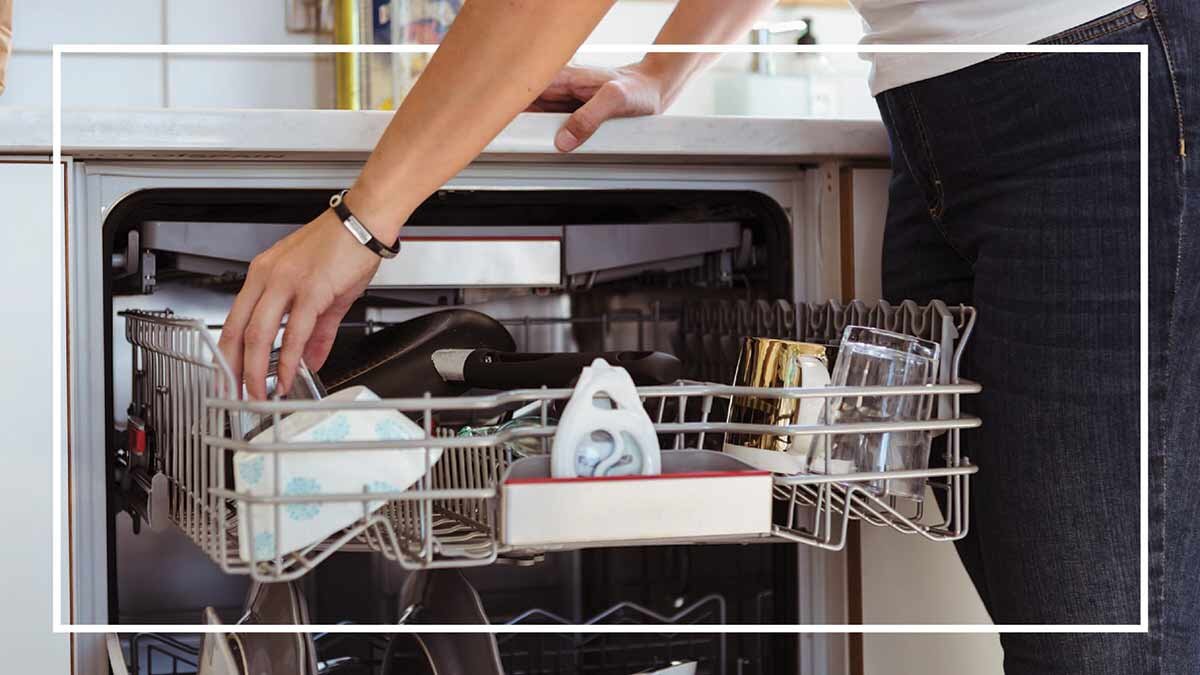Dishwashers save $111 / 230 hours a year
If you find yourself cooking more at home, then you're also cleaning more dishes. So what saves the most energy: Washing dishes by hand or using your dishwasher?
All things being equal, ENERGY STAR estimates that you'll save about $111 a year on energy bills by using an ENERGY STAR certified dishwasher rather than hand washing at home.
But in the real world, all things are never equal. What about pre-washing dishes before loading them into the dishwasher? What about different approaches to hand washing? We'll get into some of the details.
First, if you have an energy efficient dishwasher, there are lots of reasons to use it as your default option for washing dishes. Here are a few reasons highlighted by ENERGY STAR:
Save time. It's estimated that you'll save 230 hours over the course of a year - almost 10 full days - by using an ENERGY STAR dishwasher rather than washing by hand.
Get cleaner dishes. You know that squeaky clean feel, right? High efficiency dishwashers boost the water temperature to 140 degrees to achieve higher standards of cleaning and disinfection.
Reduce water waste. An ENERGY STAR dishwasher uses about 25% of the energy and saves more than 7,000 gallons of water each year, compared to washing dishes by hand.
Here's an infographic that helps to bring the cost savings to life.
Scrape don't rinse
If you have a relatively new and efficient dishwasher, you shouldn't need to do a pre-rinse before loading the dishes. Simply scrape the chunks of food off your plates.
If your dishwasher is a few years old, experiment with this. Try scraping instead of pre-rinsing, then see how clean they are after a cycle in the dishwasher. If they're as clean as ever, then you're golden.
Does your dishwasher have a rinse feature? Use this if your dirty dishes sit overnight. The rinse feature uses a fraction of the water needed to hand rinse.
Load it up
Dishwashers use about the same amount of energy and water regardless of the number of dishes inside, so run full loads whenever possible. Consumer Reports offers some common-sense tips to load up your dishwasher without overcrowding or damaging your dishes.
Skip the heat
Do you really need the heat-drying option? To save energy, de-select the heat-dry setting. Consider supplementing with an environmentally-sensitive rinse agent if you have an issue with water spots.
Some things are better to wash by hand - like big pots, china with gold leaf, or items made of brass, bronze, or wood. Here we feature one approach to washing dishes by hand that prioritizes energy and water savings.
The basic approach is to use three bowls or basins to (1) pre-rinse, (2) sanitize, and (3) final rinse. Using bowls or basins will save a considerable amount of water compared to running the tap throughout the dishwashing process.
Free up your sink. It's best practice to stack your dishes next to the sink rather than in it so that you can use your sink as one of the basins.
Pre-soak. Scrape off chunks of food into your compost as you fill the three basins with water that's as hot as your hands can tolerate. Pre-soak / rinse your dishes in the first basin.
Get clean. Now it's time to clean your dishes in the second basin. There are a couple options here: You could either fill a sink with hot soapy water, or you could fill only a small bowl with one cup of water and one tablespoon of dish soap. The idea with the small bowl is that you dip your scrubber or sponge into the bowl as you clean dishes and put them into the third basin.
Rinse 'em off. Pretty straightforward here - simply rinse off your soapy dishes in the third basin. You'll want to finish by blowing off the water with an old hair dryer. Just kidding! Use a towel or rack dry.
So how does the energy consumption of the bowl / basin approach compare to an efficient dishwasher? An ENERGY STAR dishwasher uses about 4 gallons of water per cycle. The water and energy consumption is likely to be similar, but the time savings and added sanitization still make the dishwasher a better bet.
Thanks for reading our blog. If you liked this article, please sign up for our newsletter or learn more about our energy saving services in Portland and Bend, Oregon.


